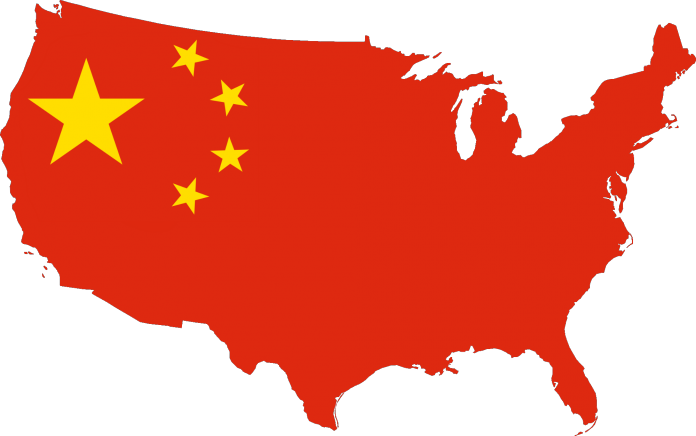This article is written by Jisha Garg, a student currently pursuing B.A.LLB (Hons.) from the Rajiv Gandhi National University of Law, Punjab. This is an exhaustive article which deals with the question of whether China deserves the permanent membership of the UNSC. The article delves into the various reasons due to which China is not worthy of the permanent membership of UNSC.
Table of Contents
Introduction
With the global cases of the deadly COVID-19 rising to 23 million, approx. 8 Lakh people dead (As of 24th August 2020), world economy crippling and poor dying of starvation and denial of medical care due to extended lockdowns and a halt in the supply chain, it’s time to overlook the world order and determine its accountability to those states and its residents whose lives have been devastated by the deadly virus. The country that owes the maximum accountability to the international community is China. Apart from being liable at a national level, China also owes accountability as a permanent member of the United Nation Security Council (UNSC). China has not only been alleged for failure in informing the world about the grave dangers of the contagious disease and restraining whistleblower’s voices but also for its negligent attempt towards restraining the spread of the disease resulting in an impetuous disregard of state’s rights. China, being one of the permanent members of the UNSC, has also failed its international responsibility by vetoing a transparent discussion on the origin of COVID-19. Keeping all these aspects in mind, it is important to rethink whether China still deserves permanent membership of UNSC or not?
Allegations on China
- This is not the first pandemic to have originated from China. China has been earlier alleged for the spread of the SARS (Severe Acute Respiratory Syndrome) outbreak in 2002-2003. The allegations regarding the spread of SARS were levelled by one of China’s senior doctors. COVID-19 is said to have originated from a seafood and animal market in Wuhan which is why China is being alleged for the spread of the disease.
- Another major allegation against China is that although it stopped domestic flights from Wuhan from 23rd January, it did not stop international flights from Wuhan. By the time it announced lockdown in Wuhan, 5 million people had already left the city. The contention is that China decided to hide this crucial information from the world.
- Thirdly, the Chinese government has refused to share any virus samples with the world and has declared that any research available to the world would be approved and carried out in the Chinese labs. This has made it impossible for the world to track the disease’s origin which is why it has become difficult for the world to determine China’s liability.
- Before the virus could reach other parts of the world, China started buying much of the global supply of face masks and protective gear. It has been claimed that China imported 56 Million respirators and masks in the last week of January itself. One of the major exporters of these masks was China which is one of the worst-hit countries by the virus presently.
- Lastly, the Chinese government threatened those who started voicing their concerns at the early stage of the spread of the pandemic. Anybody speaking against the State’s censorship apparatus was threatened and even killed in some cases.
Despite all these serious allegations levelled against the Chinese government which clearly indicate its liability, China has refused to allow such an inquiry despite World Health Assembly’s resolution and The European Union’s continuous insistence. The issue of contention is that if China is not guilty then why are they questioning such a probe. Instead, it should support an independent probe which would ensure accountability and help in clearing the air around the issue.
China’s arrogance in UNSC
While the World Health Organisation declared COVID-19 as a pandemic on 11th March 2020, the UNSC decided to remain silent and even failed to convene a single meeting to address the prevailing situation. This was because, during the outbreak of the pandemic, the chairmanship of UNSC was with China and was passed onto the Dominion Republic in April 2020. Even when the Chinese ambassador to UNSC chaired the first meeting through a video conference and adopted four new resolutions, none of the resolutions pertained to the pandemic. Even the Estonian government has blamed China, along with its alliance partners including South Africa and Russia, for vetoing a transparent discussion on the issue of the pandemic in UNSC.
Being one of the five permanent members of the UNSC, China has often been alleged for influencing the decision-making process especially when the urgent issues are against its national or foreign interests. China has often backed off in contributing to an international initiative in times of grave crisis and hence leaving the international community on crossroads. China has often overlooked the rule of law and the principles of law, for whose implementation the UNSC was established in the first place.
China’s failure in UNSC
The current situation is evident that the UN system has not only failed to anticipate the outbreak of such a contagious pandemic but has also failed to prevent its spread. The global economy is in shambles and the systematic flaws of the current regime in addressing the universal health problem have also come to light. The current situation aggravates the demand for effective world order and an efficient UNSC.
In order to fight such unexpected pandemics, it is important that we are led by those countries and persons who have high ethical principles and leadership qualities in order to steer the world towards safety. China, being the chairman of the UNSC at that point, has clearly failed to display such qualities. Even in the situation of the outbreak of such a large pandemic, China has been focussed more on clouting its own global influence by trying to cover its losses by supplying masks and other protective equipment. It’s rather opaque administrative system has put the entire world in danger.
From time to time, China has attempted to challenge the permanent membership of countries like Japan and India in UNSC, who have brought hopes of offering an alternative leadership model. Even though Japan is one of the largest financial contributors to the UN, its candidacy for permanent membership of UNSC has been rejected by China from time to time by use of its veto power. China has also ignored the support given by India during the question of permanent membership of China in the UNSC.
The failure of UNSC
The first time when the Security Council discussed a public health crisis was in 2000 when the Council met to discuss the issue of HIV/AIDS and its effect on security and peace in the African region. The Security Council, under the former chairmanship of Secretary-General Ban-Ki-Moon, in 2014 convened an emergency meeting in the wake of the spread of the deadly Ebola virus, which was considered as a public health crisis. In this situation, the UNSC has even failed to establish that COVID-19 threatens international peace and security which is the first step in addressing a public health emergency. Further, it has failed to establish what kind of threat to peace and security can be posed by the spread of COVID-19.
Although such things were established in the earlier outbreaks when the UNSC was under the chairmanship of other countries, UNSC under China’s leadership has failed to address the issue adequately. Another aspect that’s been questioned is that although passing declarations on such issues are outside the jurisdiction of UNSC, this is not the reason why UNSC has failed to take action in the prevailing situation. This is because, through its political and powerful clout, China will prevent the UNSC from passing resolutions in this regard similar to the ones passed in the past in the case of HIV/AIDS and Ebola virus.
Even if China would not have the chairmanship of UNSC during the outbreak of the pandemic, it would have used its powers through the use of the veto in order to avoid fair investigation in the present case. The failure of UNSC points out to the lack of transparency in its functioning and investigating the case of the spread of COVID. Some entities from the international community have even asserted that even if China had not headed the Security Council during the outbreak of the pandemic, it would still have managed to escape liability which is one of the clear indicators of the failure of the Council. A country possessing such influence on an international organisation is a threat to the global community and hence should be scrapped off from the permanent membership to the Council.
The legal scenario
An aspect to be explored in the present case is that even if it is decided that China does not deserve a permanent membership of the United Nations Security Council, what are the legal basis to remove China from this position. Following are the various choices available to the international community in this regard.
- The first option to remove a permanent or a non-permanent member is to make an amendment to the UN Charter under Chapter XVIII. However, in order to pass this amendment, 2/3 votes of the General Assembly and all the permanent members of the Security Council must agree to the proposal. The irony in this provision is that a permanent member of a Security Council is itself asked for its removal which makes the provision a failure.
- Under Article VI of the UN Charter, a member of the United Nations which has persistently violated the principles contained in the present Charter may be expelled from the organisation. However, in order to implement this provision, the General Assembly should pass a resolution that too on the recommendations of the Security Council. Even in this scenario, China can veto the decision of being a permanent member of the Security Council.
- Another alternative available is that the countries in the international community come together and Boycott China for its negligence and irresponsibility in dealing with COVID-19. However, this alternative is rather unrealistic because to reach an international consensus amongst the 193 countries of the United Nations is rather impractical. There are various countries in the world that benefit highly from trade and commerce with China and hence boycotting China would hurt their commercial interests besides the loss faced by them due to the pandemic. Besides this, the old allies of China including Russia and Iran are unlikely to betray China in this case.
- Another alternative can be that the countries that are opposing China’s membership become militarily and economically powerful and could come up with some justification to declare China’s membership invalid. For instance, earlier Taiwan used to be the permanent member of the UN Security Council but when China became wealthy and powerful; it replaced Taiwan and secured the seat of a permanent member.
Conclusion
It can be safely concluded from the recent turn of events that China does not deserve a permanent membership of UNSC. It has not only kept the world in dark by hiding crucial information but also used its veto powers to prevent a transparent discussion in the Security Council. The crucial question, however, is that even if China does not deserve a permanent membership of UNSC, there are no legal means to suspend its permanent status at the Security Council. This can have dangerous consequences for the world since it will encourage China to work according to its whims and fancies in the future with no worries about ensuring accountability to the international community.
However, the positive aspect of the discussion is that the current pandemic will hopefully encourage nations to believe in the values of harmony, fellowship and universal well-being to not just pursue UNSC reforms, but also take actions against China’s irresponsible behaviour. Thus, in the post-COVID-19 period, the global community must hold China accountable through treaties, covenants and charters. Legal options should not only be explored at the United Nations but also at other international forums. Time has come to tax and reprimand China for its authoritarian and non-responsible role in the global governance regimes.
References
- https://thewire.in/diplomacy/those-who-beg-do-not-deserve-permanent-membership-of-the-security-council
- https://www.firstpost.com/india/sushma-swaraj-urges-unsc-reforms-main-challenge-is-securing-chinas-support-for-indias-permanent-seat-6700511.html
- https://www.opindia.com/2020/03/china-unsc-un-security-council-block-discussion-draft-coronavirus-covid-19-transparency/
LawSikho has created a telegram group for exchanging legal knowledge, referrals and various opportunities. You can click on this link and join:
 Serato DJ Crack 2025Serato DJ PRO Crack
Serato DJ Crack 2025Serato DJ PRO Crack











 Allow notifications
Allow notifications


